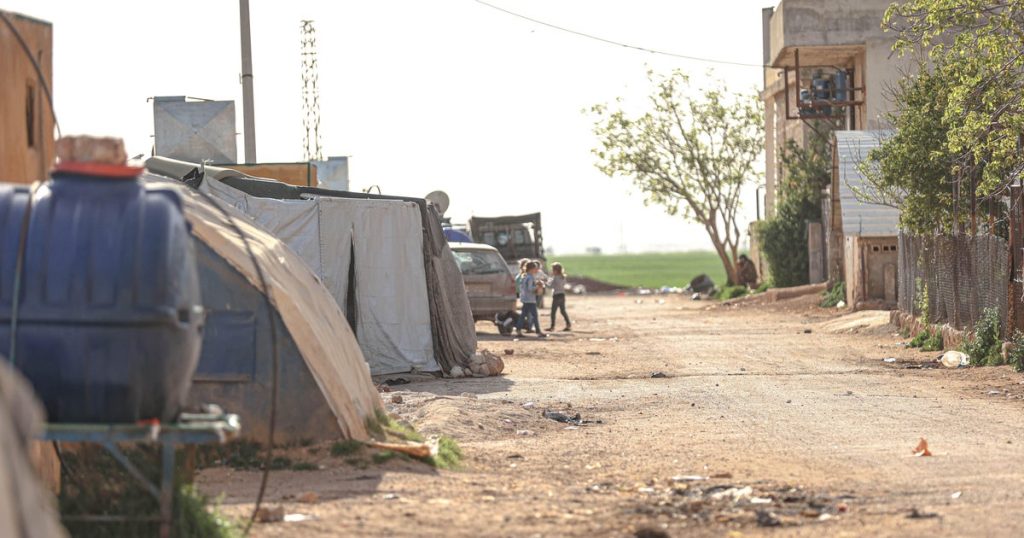Recent developments have intensified concerns regarding security in Syria, as the U.S. government issued warnings of increased risks of attacks during the Eid el-Fitr holiday, which marks the end of Ramadan. This comes in the wake of escalating tensions in the region following the ouster of President Bashar al-Assad by Islamist insurgent groups. The U.S. State Department has cautioned that embassies, international organizations, and public institutions in Damascus could become possible targets for attacks, as militant threats loom large in the backdrop of the celebrations.
| Article Subheadings |
|---|
| 1) Overview of the Eid El-Fitr Holiday in Syria |
| 2) Security Warnings from U.S. Officials |
| 3) Impact of the Conflict on Civilians |
| 4) The Ongoing Threat of Militancy |
| 5) International Response and Outlook |
Overview of the Eid El-Fitr Holiday in Syria
Eid el-Fitr is a significant religious festival for Muslims, celebrating the conclusion of Ramadan, a month of fasting, prayer, and reflection. In Syria, the holiday typically brings families together for communal prayers, feasts, and celebrations. However, this year, the festivities may differ drastically due to the ongoing security situations. Authorities confirmed that Eid could commence on Sunday, contingent on the sighting of the new moon. Many families are grappling with challenges posed by limited resources and the prevailing atmosphere of fear and uncertainty fueled by the country’s complex socio-political dynamics.
Security Warnings from U.S. Officials
In a recent travel advisory, officials from the U.S. State Department issued warnings indicating the heightened potential for attacks targeting U.S. embassies, foreign organizations, and public structures in Damascus. This alert underscores the precarious security landscape in Syria, especially around important dates like Eid el-Fitr when gatherings may provide opportunities for extremist actions. With the deteriorating situation fueled by insurgent activities, the U.S. has reiterated its commitment to ensuring the safety of its citizens abroad while emphasizing the risks involved in traveling to the region during this volatile time.
Impact of the Conflict on Civilians
The recent years of conflict in Syria have resulted in untold suffering for millions of civilians. Reports indicate that thousands have been displaced, particularly after the Islamist militant group Hayat Tahrir al-Sham (HTS) seized control and ousted President Bashar al-Assad in December 2023. This political upheaval has further exacerbated the refugee crisis, leaving many families unable to celebrate Eid in the comfort of their homes. Instead, they find themselves in makeshift camps, with limited access to basic amenities, enduring hardships that overshadow the spirit of the holiday. One poignant image noted that children in these camps played on streets made bleak by their circumstances, revealing the harsh reality that many face.
The Ongoing Threat of Militancy
Although the Islamic State group was largely defeated in Syrian territories by 2019, the organization still poses a significant threat. The remnants of its militant agenda have manifested in the form of sleeper cells, particularly in areas controlled by U.S.-backed Kurdish forces in northeastern Syria. These insurgents have claimed responsibility for several attacks in recent months, highlighting that the militant risk remains far from eradicated. The ongoing insurgency reflects not only the complex military and political landscape of Syria but also underscores the challenges that the international community faces in restoring stability to this war-torn nation.
International Response and Outlook
In light of the increasing tension and risk of violence during the upcoming Eid festivities, international bodies and foreign governments are closely monitoring the situation. Efforts to stabilize Syria through humanitarian aid and diplomatic channels continue, attempting to address both immediate and long-term needs of the displaced populations while confronting militant threats. As the situation unfolds, the efficacy of these measures will be critical to determining the future of peace and security in Syria, especially for the vulnerable civilian population caught in the middle of the conflict. Observers remain wary, understanding that a proactive international response is paramount in addressing both the humanitarian crisis and the security challenges posed by terrorism and militia violence.
| No. | Key Points |
|---|---|
| 1 | Increased risks of attacks during Eid el-Fitr have been warned by U.S. officials. |
| 2 | Thousands of civilians are displaced and in dire conditions due to ongoing conflict. |
| 3 | Islamic State sleeper cells are still operational, maintaining a threat in northeastern Syria. |
| 4 | Religious celebrations are overshadowed by fear and insecurity in the region. |
| 5 | International response includes monitoring and humanitarian efforts to stabilize the region. |
Summary
In conclusion, the escalating tensions in Syria as warned by U.S. officials present a stark backdrop to the upcoming Eid el-Fitr celebrations. As the international community seeks to address the humanitarian needs of civilians living under dire conditions, the threat posed by insurgents remains a significant concern. The situation calls for sustained international engagement to restore security and provide relief to those affected by the ongoing conflict.
Frequently Asked Questions
Question: What is Eid el-Fitr?
Eid el-Fitr is a significant Islamic holiday marking the end of Ramadan, characterized by communal prayers, feasting, and celebrations among families and communities.
Question: Why is the U.S. concerned about attacks during the holiday?
The U.S. government has warned of potential attacks on embassies and public institutions due to the heightened state of insecurity and the presence of militant groups in the region during significant public gatherings.
Question: How has the conflict in Syria affected civilians?
The prolonged conflict has resulted in widespread displacement, leaving thousands of civilians in precarious and often dire living conditions, especially as they face challenges during traditional celebrations such as Eid.


